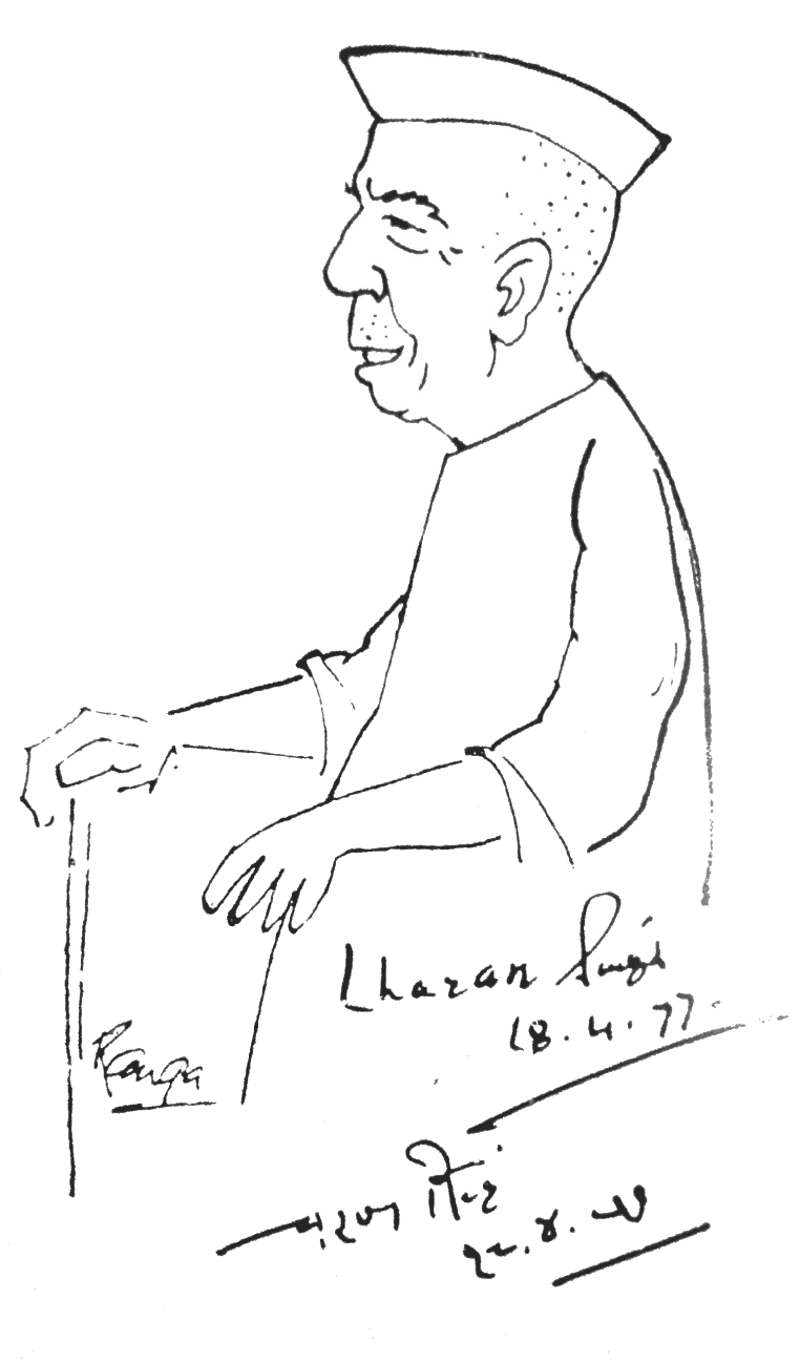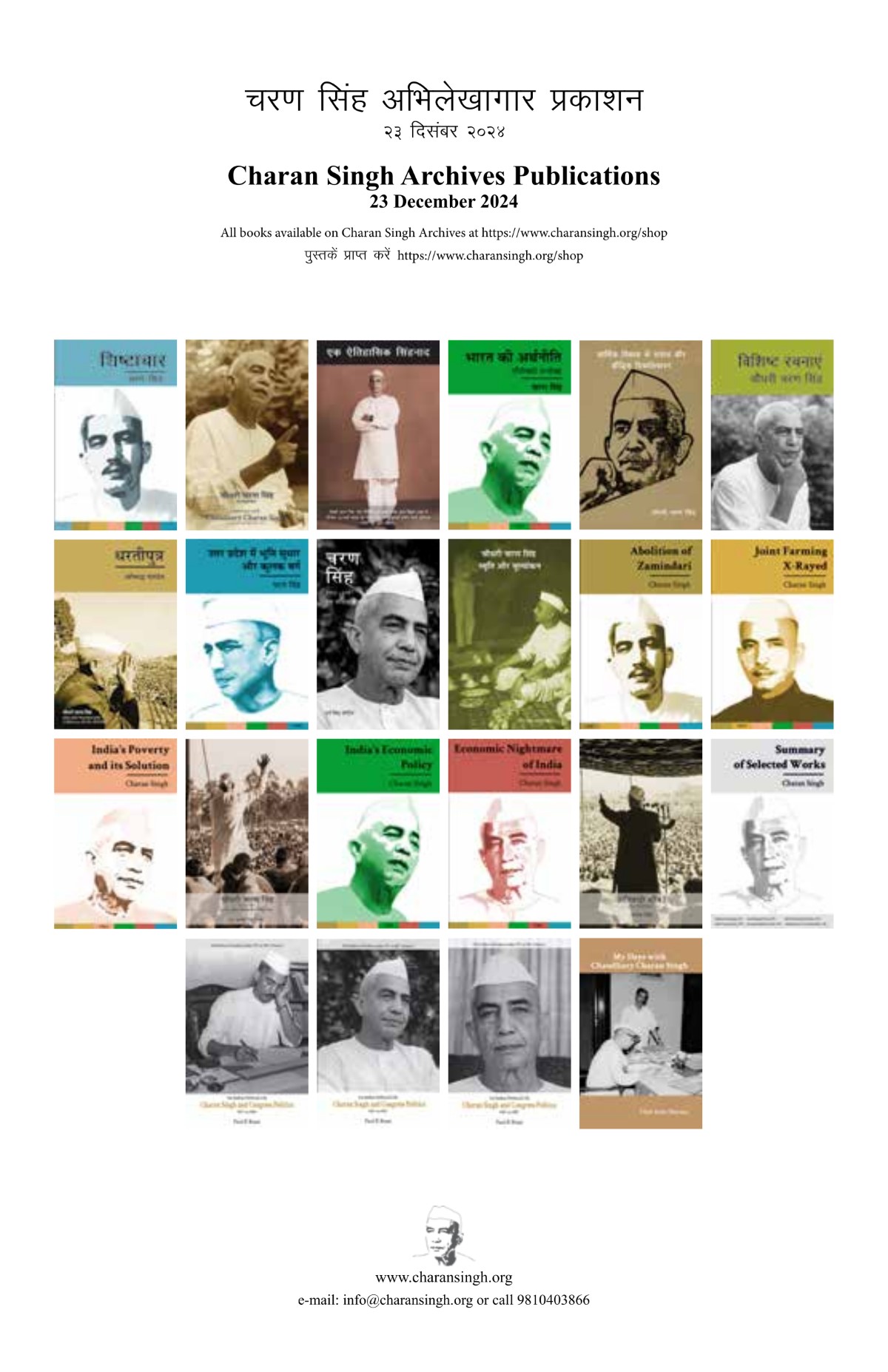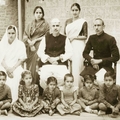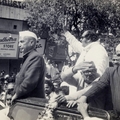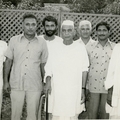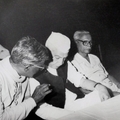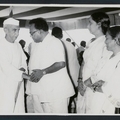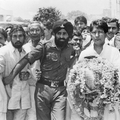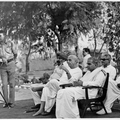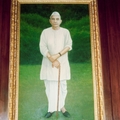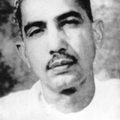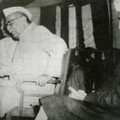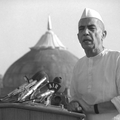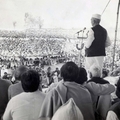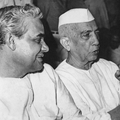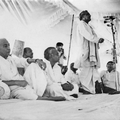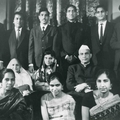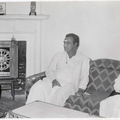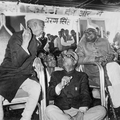Archival is a science that requires skills and resources that I am singularly ill equipped to deploy. The experience I possess is in the management of people, processes, projects and capital; a distance from the world of scholarship in history & political science. This Archive has been made possible, despite the lack of relevant skills and competence, due to a commitment to revivie the fading public memory of a great man.
This Archive is founded on the contributions of many people, the first of which was my grandmother Gayatri Devi who protected Charan Singh’s written heritage by donating it to the Nehru Memorial Museum and Library (NMML) in 1994. The irony I do not miss is that this valuable corpus rests at NMML constructed in the memory of India’s first Prime Minister Jawaharlal Nehru – the man who Charan Singh held singularly responsible for what he considered were the wrong (industrial, urban, alien) direction of India’s economic and social development.
The ‘Charan Singh Papers’ at PMML, Delhi are more 175,000 pages in total in three instalments and contain a lode of information, and are easily accessible to the public. For access interested researchers may please contact CSA at info@charansingh.org or Head Research & Publications Division at NMML (http://pmml.nic.in/contact/contactUs). The Index of the CS Papers are as follows:
Prime Minister's Museum & Library - Charan Singh Papers: Instalment I
Prime Minister's Museum & Library - Charan Singh Papers: Instalment II
Prime Minister's Museum & Library - Charan Singh Papers: Instalment III
The corpus of material CSA possesses includes all the books written by Charan Singh (all in original editions); many books and papers written on him by scholars, critics and politicians; the manifestoes and meeting minutes of his various political parties; his speeches in text and audio; videos from various departments of the government, thousands of photographs, and numerous letters from and to him. There are also many books, pamphlets, newspaper and newsmagazine articles on him, some of which are hagiographic and obsequious as in the wont in our society when we deal with important public figures, but is archival history nonetheless. There are a number of critical articles and books that pillory Charan Singh. There are also many audio interviews conducted by Paul Brass with Charan Singh, and with a host of (over 100) politicians in U.P. that Paul met and recorded over the course of 1961-1985 when he studied Uttar Pradesh in depth.
It has taken us 12 months to collect the material we possess, and we will continue to seek out material before Indian time and attitudes claim them. I can only wring my hands at starting this collection process so late, 26 years after Charan Singh’s passing. Memories disappear with people, and we have lost the knowledge of two generations after him - along with documents that could have enabled us unravel the times Charan Singh's life's work was created by. To record the memories of the few close political associates and family that we now have, we have commenced a 'CSA Oral History Project’. This is an onerous and time consuming task - the identification of people to be interviewed, the scheduling of personal interviews, recording, contextualisation and selective publication.
As you can see it’s a massive task curating this material, it is truly the effort of a lifetime. The people working on the archive need to have knowledge of Charan Singh and his family background and influences, the political and historical times he was in, history of the Indian National Congress, the Arya Samaj movement in Western UP, party and factional politics in Uttar Pradesh since the 1930’s, the economic battles of industry versus agriculture and rural versus urban, the perspective of the Jana Sangh and various Socialist splinter movements that simultaneously opposed and joined with Charan Singh right till 1985. The archivist needs time, money and patience to tag, digitise, upload, and comment to provide context and interpretation for the visitor on each piece in the collection. All this has to be done in English and in Hindi, with all the issues of competence and money challenges of translation.
Besides what we have collected, a host of material yet remains hidden – for example, newspaper and newsmagazine articles need to be accessed and approval obtained to make available on the CSA site, photographs (prints, negatives) need to be sourced and then prised from the hold of government departments or from private film photographers of the 1970s.
I write this not only to share with you the effort the CSA has invested, but to have you understand the slow pace at which this archive will progress. You will see many pages and actions with a ‘please visit later’ text, or information that seems inadequate or without context. I would rather CSA were out in the public domain in a skeletal form, and that we worked to populate the sections one step at a time in public view. Information heavy and complex projects like this one, with so much of the making of history at stake, can never be launched complete. They grow incrementally, and with care.
Please bear with us, and write in (info@charansingh.org) to let me know where you want to see more of, or less of, or faster. Better still, we would love it if you volunteer to be associated with CSA and help make the memories of Charan Singh come alive for future generations.
Harsh Singh Lohit
23 December 2015


